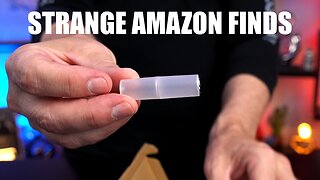Israeli Study Shows Negligible Protection of Pfizer Vaccine Against Viral Transmission
Join The Conversation! | https://trialsitenews.com/
Israeli researchers, represented by corresponding author Naama M. Kopelman from Holon Institute of Technology, Department of Computer Science, and scientists from the clinical microbiology and epidemiology departments in Sheba Medical Center conducted a retrospective study combining population-wide national vaccination data along with Ct data derived from four major Israeli laboratories conducting SARS-CoV-2 PCR tests in a bid to measure not only vaccine effectiveness (e.g. usually measured by protection from infection, clinical disease or death) but also the potential risk of transmission given infection. This latter element, however, often neglected during COVID-19, represents a serious topic for public health policy concern and the reduction of viral spread. In this study, the impressive team of scientists investigated the important measurement of risk of transmission given infection by factoring the viral load, which negatively correlates in testing with cycle threshold (Ct) values in quantitative real-time polymerase chain reaction (qRT-PCR). A readily available surrogate to estimate infectiousness—the Ct values associated with the SARS-CoV-2 PCR tests were the basis for this retrospective study comparing Ct levels of individuals in Israel vaccinated with 2, 3, or 4 doses versus COVID-19 recovered individuals. The findings reported are troubling. With acknowledged limitations aside, the findings raise imminent questions about any booster dose campaigns moving forward. With an emphasis on the mRNA vaccine produced by Pfizer-BioNTech (BNT162b2), the team reports that whether it’s the 2-dose primary series, 3rd dose booster (during Delta or Omicron), or the 4th dose for elderly and at risk, the duration of benefit as considered in protection against viral transmission is short-lived. Given the enormous public expenditure, this performance calls for the need to reassess the future of booster campaigns.
-
 19:23
19:23
Freakin' Reviews
1 day agoTesting Strange & Useful Amazon Gadgets!
43.6K15 -
 33:49
33:49
Degenerate Jay
18 hours agoThe Most Underrated Bond Movie? 007 Tomorrow Never Dies - Movie Review
41.6K19 -
 8:00
8:00
Misha Petrov
1 day agoWhy The Left Is CANCELLING And BLOCKING Celebrities
62.4K178 -
 13:37
13:37
ryanhoguepassiveincome
1 day ago $0.01 earnedAmazon FBA Product Research Tutorial for 2024
50.9K5 -
 24:43
24:43
Crime Circus
23 hours agoIdaho 4 Mysteries!! Bryan Kohberger Investigation! Moscow Idaho Documentary
48.8K15 -
 19:16
19:16
MYLUNCHBREAK CHANNEL PAGE
21 hours agoThe Old World is in The Catacombs? - Part 2
47.6K59 -
 5:48
5:48
Chris Jericho
18 hours agoTalk Is Jericho Highlight: Are You Kidding TV x NBA x MLB
27K -
 5:02
5:02
Tactical Advisor
1 day agoHUGE UPDATE! ATF Lost Pistol Brace Rule
38.1K15 -
 1:02:07
1:02:07
Man in America
1 day agoThey Know Trump Will Win & They'll UNLEASH CHAOS After Nov. 5 w/ Tom Renz
66.1K162 -
 58:11
58:11
The Why Files
3 days agoThe Search for Noah's Ark | Giants & Aliens in the Book of Enoch
72.9K91